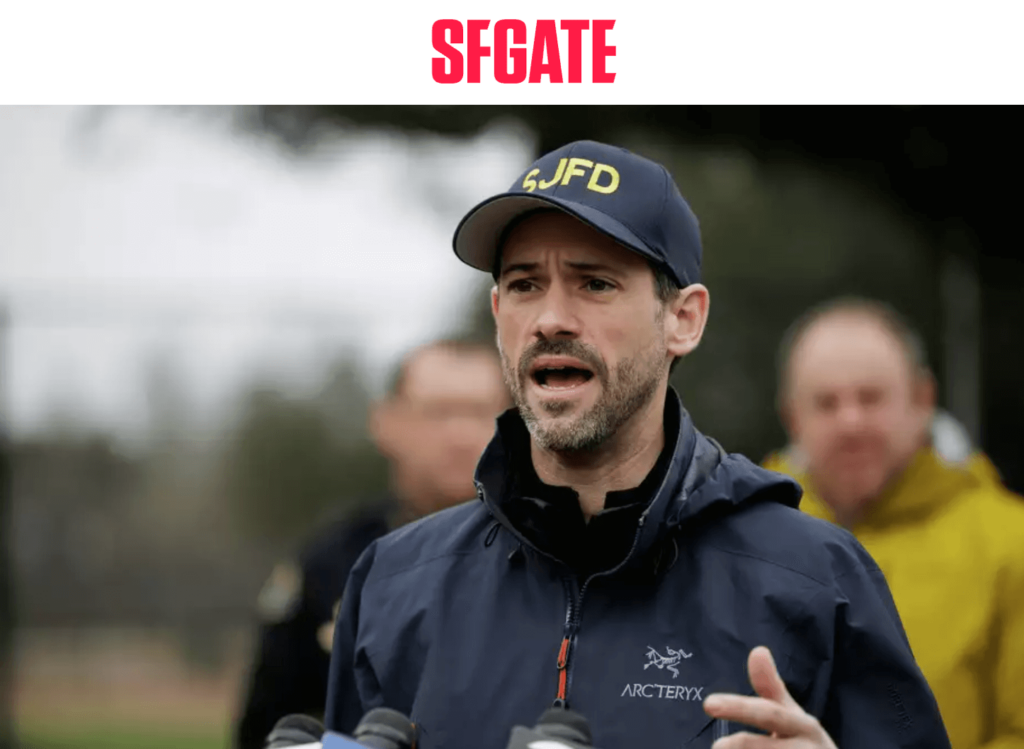San Jose Mayor Matt Mahan shares the family history that is at the heart of his support for the crime policy proposal in this column
By Matt Mahan
It is fair to say that Californians have had enough. Our well-intentioned efforts to ease prison overcrowding have given way to skyrocketing drug overdose deaths, retail theft and homelessness. While some Sacramento politicians have retreated into partisan silos, local elected officials have united to advance Proposition 36, a statewide measure that would close gaps in current law that have hampered drug courts and reduced accountability for repeat offenders.
This is not a story of political divisions between Democrats like myself and Gov. Gavin Newsom, as some have suggested. Instead, it is a reflection of the suffering that too many Californians see with their own eyes every day. They ask their mayors, city council members and county supervisors, “What are you doing about fentanyl overdoses, smash-and-grab robberies, and tent encampments?” whether they’re at the grocery store, a restaurant or the doctor’s office.
To get it right, the answer must not be a product of cold political calculation but rather the humbling and clear-eyed lens of personal experience. Here’s mine.
When I was a kid, my older cousin sold his Mustang for drug money.
Soon thereafter, he left home, and my uncle spent his days searching the streets of Santa Cruz, where his son was rumored to be, desperately looking for him. But my cousin was too high to know what was happening and too lost in his addiction to realize he needed help.
My cousin refused to accept the care his parents offered. He remained on the streets, caught in a cycle of addiction, with no hope, no home and no will to turn his life around. Eventually, my uncle decided enough was enough. He couldn’t wake up each morning not knowing whether his child had survived the night or overdosed on the street.
He eventually found and effectively forced my cousin into addiction treatment. He saved his life. My cousin is alive today because he had a family who never gave up on him.
The epidemic of suffering on the streets of California today calls a similar question. About 45% of our over 180,000 homeless neighbors statewide struggle with substance abuse. Many have turned to a destructive cycle of stealing and dealing to support their habits. Lives are being lost and businesses are being shuttered as once-thriving urban corridors are transformed into tent cities and open-air drug markets.
Judges in California once had the latitude to require those in the criminal justice system for drug offenses to seek treatment instead of jail, and our drug court system also provided incentives to seek meaningful and court-monitored addiction treatment. When confronted with a choice between prison or treatment, many chose treatment for their benefit and for ours, because getting clean meant getting away from the cycle of stealing to fund drug or alcohol addictions.
But in 2014, with the passage of Proposition 47, California judges lost the leverage to require those found guilty of repeat drug offenses to engage in treatment.
Like most Californians, I voted for the measure, persuaded by the promise that we could end the era of mass incarceration and use the savings to fund treatment and diversion programs. While Prop. 47 did lower the prison population, the promises of a massive expansion of treatment, especially the intensive, in-patient treatment services that saved my cousin’s life and other diversion programs, were not kept.
In the years since, we’ve actually witnessed a precipitous decline in drug court participation by those who most need help. Many choose to return to the streets and continue feeding their addictions rather than detox and get on the long and difficult road to recovery.
But those aren’t the only tragic, unintended consequences of this well-meaning measure.
Since 2014, California has experienced a nearly 60% rise in homelessness, according to data submitted to Congress from annual point-in-time counts, while most other states have seen a decline. The cost is unsustainable, with local service demands draining an average of $50,000 from public budgets for every homeless individual in our state. In 2022 alone, nearly 11,000 Californians died of drug overdoses. And because of a near-total lack of consequences for many property crimes, we saw a spike in retail thefts, and we are now all paying higher bills for what is essentially a theft tax as businesses lock up items, invest in private security and raise prices to cover rising product losses.
Last March, we took an important step forward in expanding our supply of treatment beds when California voters passed Proposition 1. Now we need to take the next step. That is why so many local elected Democrats like myself along with nearly 200 Democratic and independent mayors, city council members and county supervisors across our state have broken with Newsom and united behind the commonsense and thoughtful reforms proposed by Prop. 36 on our November ballot.
Prop. 36 allows judges to mandate treatment for those with untreated addiction. It also increases accountability for those convicted of repeated retail thefts and those dealing fentanyl, which has caused drug overdose to recently become the leading cause of death for Californians ages 15 to 44.
None of us wants to criminalize homelessness or go back to the era of mass incarceration of drug addicts. That’s not what Prop. 36 does. Instead, it charts a new path forward to the era of mass treatment, utilizing cost-effective accountability tools that can save lives. Prop. 36 aims to do for Californians what my uncle did for my cousin. Not everybody has a family to give them tough love, but we can all have a state that cares enough to require treatment.
Matt Mahan is the mayor of San Jose and one of the co-sponsors of a non-partisan committee working to pass Prop. 36 on California’s November ballot.

